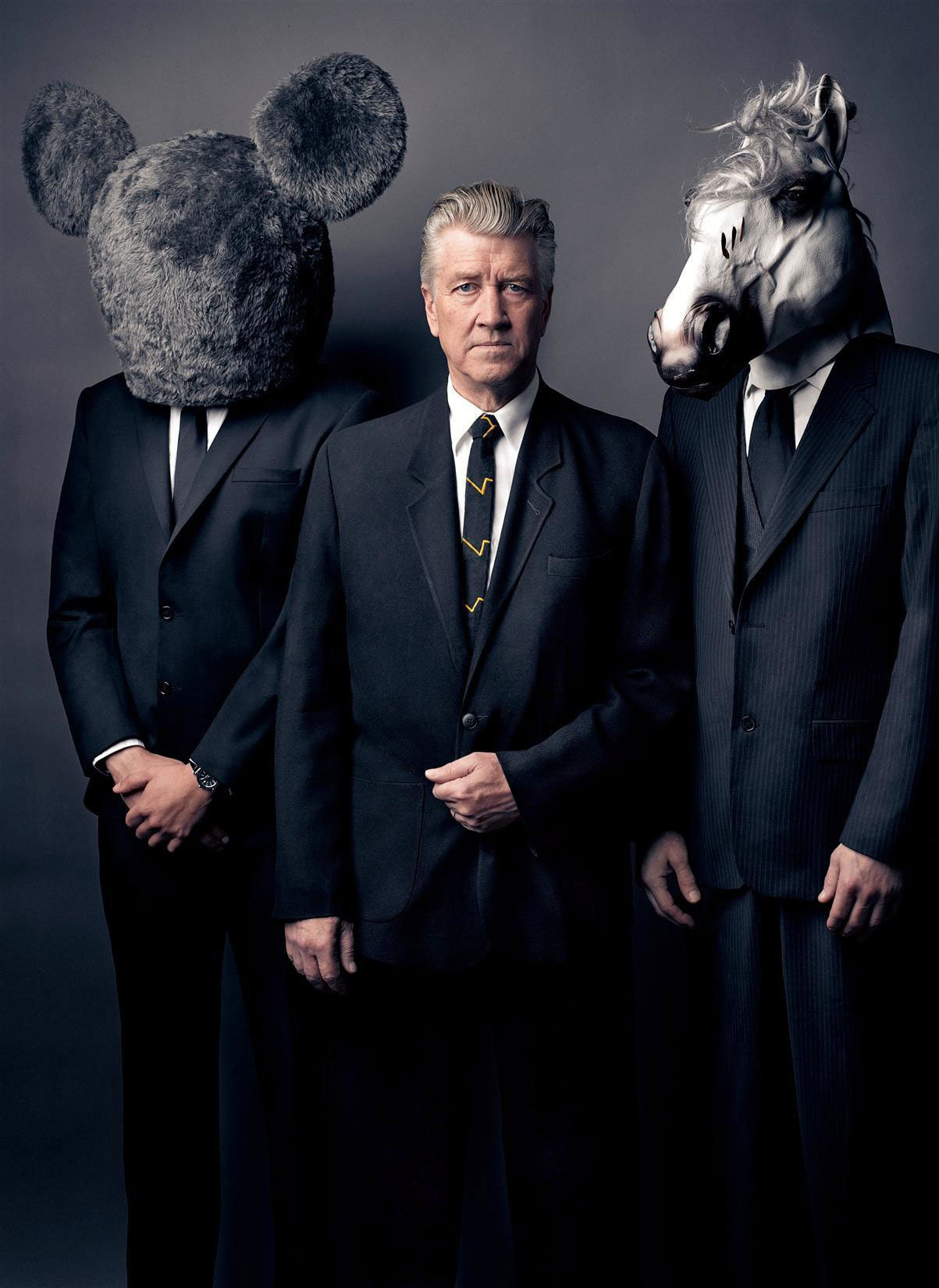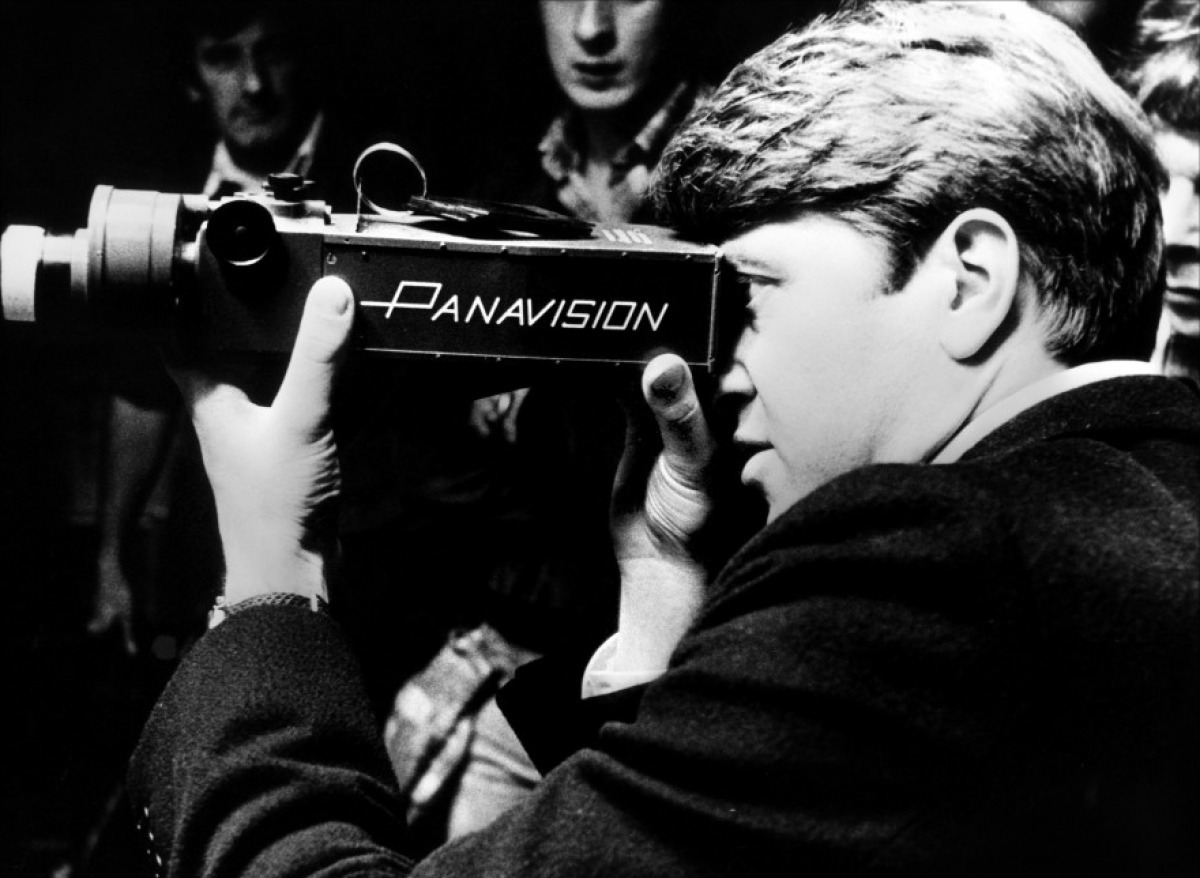
Dokumentarac koji je Lynch napravio za BBC, čim je svijet shvatio da je moguće snimiti Plavi baršun.
What living director has drawn the descriptor “surreal” more often
than David Lynch? If you’ve seen, or rather experienced, a few of his
films — particularly Eraserhead, Lost Highway, Mulholland Dr., or Inland Empire, or even the first half of his television series Twin Peaks
— you know he’s earned it. Like any surrealist worth his salt, Lynch
creates his own version of reality, with its own set of often
unfathomable and inexplicably but emotionally and psychologically
resonant qualities. In 1987, the year after his breakthrough Blue Velvet
opened in theaters, the BBC apparently thought him enough of an
authority on the matter of cinematic surrealism to enlist him to present
an episode of Arena on the subject.
And so we’ve highlighted, just above in two parts, the fruit of their collaboration, with apologies for the straight-from-the-VHS quality of the video. (I just think of the slight muddledness as adding another welcome layer of unreality to the proceedings.)
Lynch’s duties on the broadcast include providing facts about the films and filmmakers excerpted throughout to tell the history of surrealist film. (He also provides several choice opinions, as when he calls Philadelphia “one of the sickest, most corrupt, decadent, fear-ridden cities that exists.”) We see bits and pieces of pictures like Luis Buñuel and Salvador Dali’s 1929 Un Chien Andalou (above), Jean Cocteau’s 1932 Blood of a Poet (below), Fernand Léger’s 1947 The Girl with the Prefabricated Heart, and Chris Marker’s 1962 La Jetée. Not only does Lynch contextualize them, he discusses their influence on his own work. Casual filmgoers who’ve caught a Lynch movie or two and taken them as the imaginings of an entertaining weirdo will, after watching this episode, come to understand how long a tradition they fit into — and they’ll no doubt want to see not just more of Lynch’s work, but his sources of inspiration as well. (They may, however, after hearing all he has to say here, still regard him as a weirdo.)
Related Content:
Watch Dreams That Money Can Buy, a Surrealist Film by Man Ray, Marcel Duchamp, Alexander Calder, Fernand Léger & Hans Richter
Un Chien Andalou: Revisiting Buñuel and Dalí’s Surrealist Film
The Hearts of Age: Orson Welles’ Surrealist First Film (1934)
The Seashell and the Clergyman: The World’s First Surrealist Film
Man Ray and the Cinéma Pur: Four Surrealist Films From the 1920s
David Lynch’s Surreal Commercials
Colin Marshall www.openculture.com/
...a usput, evo i najvažnijih dokumentaraca o samom Lynchu:
The essential documentaries on David Lynch, including Pretty as a Picture: The Art of David Lynch (1997), David Lynch: Don’t Look at Me (1989), Lynch (2007), Mysteries of Love (2002), Eraserhead Stories (2001), Jonathan Ross Presents for One Week Only: David Lynch (1990), David Lynch presents: Ruth, Roses and Revolver (BBC Arena 1987), Scene by Scene: David Lynch (BBC, 1999), and David Lynch Interview (The GUARDIAN Lectures 1985).

Jonathan Ross Presents for One Week Only: David Lynch (1990)
David Lynch presents: Ruth, Roses and Revolver (BBC Arena 1987). Doc on Surrealism (named after a film by Man Ray) for the BBC program Arena from 1987. In each part, Lynch presents extracts from what he considers films most significant to his own work.
Scene by Scene: David Lynch (BBC, 1999). Lynch interview by Mark Cousins.
David Lynch interviewed (by Chris Auty) in 1985. inc. audience Q&A. + Raffaella De Laurentiis.
And so we’ve highlighted, just above in two parts, the fruit of their collaboration, with apologies for the straight-from-the-VHS quality of the video. (I just think of the slight muddledness as adding another welcome layer of unreality to the proceedings.)
Lynch’s duties on the broadcast include providing facts about the films and filmmakers excerpted throughout to tell the history of surrealist film. (He also provides several choice opinions, as when he calls Philadelphia “one of the sickest, most corrupt, decadent, fear-ridden cities that exists.”) We see bits and pieces of pictures like Luis Buñuel and Salvador Dali’s 1929 Un Chien Andalou (above), Jean Cocteau’s 1932 Blood of a Poet (below), Fernand Léger’s 1947 The Girl with the Prefabricated Heart, and Chris Marker’s 1962 La Jetée. Not only does Lynch contextualize them, he discusses their influence on his own work. Casual filmgoers who’ve caught a Lynch movie or two and taken them as the imaginings of an entertaining weirdo will, after watching this episode, come to understand how long a tradition they fit into — and they’ll no doubt want to see not just more of Lynch’s work, but his sources of inspiration as well. (They may, however, after hearing all he has to say here, still regard him as a weirdo.)
Related Content:
Watch Dreams That Money Can Buy, a Surrealist Film by Man Ray, Marcel Duchamp, Alexander Calder, Fernand Léger & Hans Richter
Un Chien Andalou: Revisiting Buñuel and Dalí’s Surrealist Film
The Hearts of Age: Orson Welles’ Surrealist First Film (1934)
The Seashell and the Clergyman: The World’s First Surrealist Film
Man Ray and the Cinéma Pur: Four Surrealist Films From the 1920s
David Lynch’s Surreal Commercials
Colin Marshall www.openculture.com/
...a usput, evo i najvažnijih dokumentaraca o samom Lynchu:
The essential documentaries on David Lynch, including Pretty as a Picture: The Art of David Lynch (1997), David Lynch: Don’t Look at Me (1989), Lynch (2007), Mysteries of Love (2002), Eraserhead Stories (2001), Jonathan Ross Presents for One Week Only: David Lynch (1990), David Lynch presents: Ruth, Roses and Revolver (BBC Arena 1987), Scene by Scene: David Lynch (BBC, 1999), and David Lynch Interview (The GUARDIAN Lectures 1985).
If you are a fan of David Lynch, this is essential viewing. It was mainly filmed during the making of Lost Highway and most of the features are set around that film, but there is also some other scenes like the reunion of Eraserhead, where Lynch along with some of the cast and crew return to the Stables location where it was filmed and reminisce over the trials of the making of the film. Also featured is Lynch’s trip to Prague along with the composer on most of his films, Angelo Badalamenti, and his love of the sound and music which is so important in his films. His paintings and photography are shown, too, and his fascination with ants and animals in his art. There is a rare look at his early short films, Six Men Getting Sick, The Alphabet and The Grandmother, and his former wife Peggy’s views on them. This is a fascinating and interesting behind the scenes look at this distinctive filmmaker, artist and photographer’s work.

Toby Keeler, with his unlimited access to David Lynch — behind the scenes during his films, with friends and family and collaborators, and in his painting process — has a documentary that’s essential to get at least a glimpse into a man and his work like this. Lynch’s films are abstractions, nightmarish landscapes and what is just around the corner in the seemingly brightest sides of small-town American life, and his art is a reflection not just of his own interpretations of people and places that are usually conventional, but that this interpretation springs out so many ideas that would not be there otherwise without the specific framework he’s chosen. One of the most fascinating examples of this method of Lynch’s in being a true master of mood is with Eraserhead; he worked five years on the film, and Keeler shows us Lynch and old friends walking around where the original sets were, and with this revealing how after two years of painstakingly filming a movie (a shot a night, nevermind a scene, depending on the lighting), a rhythm developed that was unmistakable. If one of the primary goals of an artist is to transport people to another place that is unconventional, but still grounded in recognizable emotional connections, Lynch is such an artist, as revealed here fully.
Shot sometime in the late ‘80’s right before ‘Twin Peaks’ came out, this rather fascinating documentary shows the legendary director/artist/composer relaxing at his home, carving small statues out of clay, and refusing to discuss meaning or any of the particular details in his films. That’s one thing you learn about Mr. Lynch here, he won’t tell you what his films mean, he’d rather hear what you think. There are clips from the director’s three greatest films, ‘Blue Velvet’, ‘The Elephant Man’ and of course, ‘Eraserhead’. Fans will be thrilled when Lynch grabs Jack Nance and drives to the famous tunnel where Henry starts his warped journey in ‘Eraserhead’. An in-depth look at one of the greatest and most thought-provoking directors of all time.
Compiled from over two years of footage, the film is an intimate portrait of David Lynch’s creative process as he completes his latest film, Inland Empire. We follow Lynch as he discovers beauty in ideas, leading us on a journey through the abstract which ultimately unveils his cinematic vision. The director of the documentary immersed himself in David Lynch’s world; living and working at Lynch’s home. His unobtrusive style has captured a personal side of David Lynch not seen before. The film reveals Lynch not only as one of the most original and compelling directors of contemporary film but also as an artist who continues to explore and experiment in countless mediums. We witness his “hands on” approach to painting, sculpting, music and screenwriting. His enthusiasm is infectious; inspiring us to tap into the well of creativity that Lynch believes we all have.
Mysteries of Love is a 2002 documentary about David Lynch’s Blue Velvet,
directed by Jeffrey Schwarz. The documentary includes clips from the
film, footage and photographs from behind the scenes, and interviews
with Lynch, Kyle MacLachlan, Isabella Rossellini, Dennis Hopper and
others.
In this rare documentary, David Lynch talks about the making of his first feature film, “Eraserhead.”
Jonathan Ross Presents for One Week Only: David Lynch (1990)
David Lynch presents: Ruth, Roses and Revolver (BBC Arena 1987). Doc on Surrealism (named after a film by Man Ray) for the BBC program Arena from 1987. In each part, Lynch presents extracts from what he considers films most significant to his own work.
Scene by Scene: David Lynch (BBC, 1999). Lynch interview by Mark Cousins.
David Lynch interviewed (by Chris Auty) in 1985. inc. audience Q&A. + Raffaella De Laurentiis.
Room to Dream: David Lynch and the Independent Filmmaker features original interviews with acclaimed director David Lynch. See and hear how Lynch brings his unique vision to the screen with technologies that are now within easier reach for independent filmmakers. Interspersed with behind-the-scenes footage from a recent project, Lynch muses on the art of filmmaking, offers wisdom to aspiring filmmakers, and shows you the power of today’s tools to give you Room to Dream.
- cinephilearchive.tumblr.com/"If only the narrative arc of our half-hour together had been incomprehensible yet strangely compelling—then, and only then, would I have felt at home in David Lynch’s world. Of course, in a literal sense, very little could have prepared me for the experience of interviewing the four-time Academy Award nominated director and screenwriter; this is one original individual." —Evan Smith, Texas Monthly Talks, Broadcast 02.22.07
Nema komentara:
Objavi komentar